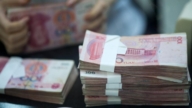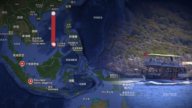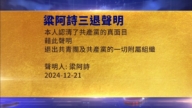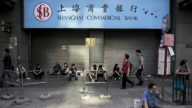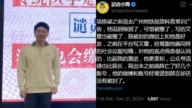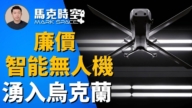【新唐人2014年02月20日讯】自从中国“杂交水稻之父”袁隆平撰文警告,中国粮食危机无法避免,将随时引爆中国社会危机后,中共当局却一再强调“粮食安全”,引发相关问题的讨论。中国粮食危机无法避免吗?下面听听专家的分析。
中国农业科学家袁隆平在一篇题为“中国最大的劫难已无法避免”的文章中,罗列了关于中国粮食危机无法避免、随时爆发的十二个理由。
文章历数中国如果出现粮食短缺将出现的可怕现象,包括:中国粮食自给率、食用油自给率之低,粮食安全之毫无底线,各类激素、环境的污染对食物链安全的忧虑,以及种子资源外资化、转基因食品泛滥、国家粮食储备之弱,以及粮食收购价格之低,导致农民种粮积极性差等。
文章最后叹息:我眼前浮现的分明是一片混乱、人相食、饿殍遍地、流离失所的情景,随时都可以发生,并且已经不可避免。
北京《国情内参》刊物首席研究员巩胜利指出,近年来,中国粮食进口急剧上升,粮食自给率不断创新低,所以袁隆平的警告并非危言耸听。
北京《国情内参》首席研究员巩胜利:“黄豆的豆油,橄榄油,菜籽油,这几年中国一直比较短缺,特别是黄豆,据说产量非常低,黄豆的缺口造成了中国粮食的最大的缺口,吃的那种油啊,现在中国进口大概70%左右,这个问题是非常严峻。”
在2011年以前,中国仅允许进口少量的大米和小麦,而玉米进口量近乎为零。但是,中共国务院发展研究中心2011年预测,中国粮食进口量将由1997年的416万吨,增加到2020年的2224万吨;但在2012年,中国粮食进口总量已超过7000万吨。中国的粮食自给率受到威胁,突破了中共早前制定的粮食自给率须保持在95%以上的“红线”。
国外也担心,中国的粮食需求将导致全球粮食供应短缺?
据世界粮食规划署中国区代表黄安生(Brett Rierson)去年的说法,中国目前已经成为世界上第二大稻米跟大麦的进口国,也是排名第十的玉米进口国,和前二十名的小麦进口国。
中国经济学者茅于轼:“中国应该进口粮食,因为中国粮食生产成本高,像美国这些地方生产成本低,所以应该进口,人家便宜的粮食你不吃,你吃贵的粮食你不是傻瓜吗? ”
但,中国大量从美国、巴西等国进口粮食,不但冲击了全球粮食价格,也打击了中国农民种田的积极性,更导致中国粮食出现危机的原因之一。
有人担心,中国一旦受到国际社会的禁运,粮食安全将得不到保障。茅于轼认为,如果国际对中国禁运粮食,一定是中共做了大恶事,即使有粮食吃,中国人的生活也好不了。
去年11月底,中共总书记习近平在山东农科院座谈会上发表讲话时说,手中有粮,心中不慌,他还警告,一旦发生大饥荒,有钱也没用。
12月中旬,中共经济工作会议上,把“切实保障粮食安全”列为了2014年经济六大任务的首位,并提出“谷物基本自给”、“适度进口”的口号和目标。
到了12月下旬,中共的农村工作会议上,七名政治局常委齐到场,再次强调粮食安全,要求“确保谷物基本自给、口粮绝对安全,耕地红线要严防死守”等。
今年的1月19号,中共公布的“中央一号文件”中,再次把“粮食安全”列入了首要地位。
中国农业生物工程学者张开指出,中共一再强调粮食的重要性,说明它也看到了中国粮食危机已迫在眉睫,但却没看到当局出台任何实质性的解决方案。
中国农业生物工程学者张开:“而且它回避了一个最重要的问题,就是要想产粮食的话必须需要土壤和水,而土壤的污染还有水的污染,这两个条件不解决的话,粮食的安全问题永远都不会解决。”
去年中国大陆律师曾经要求当局:公布预算经费达10亿元的全国“土壤污染状况”调查报告,但被环保部以“数据属于国家机密”为由拒绝。而去年底,国土资源部副部长王世元说,中国约有5000万亩因重度污染,无法种植农作物。
采访编辑/李韵 后制/陈建铭
Can China’s Food Crisis Be Avoided?
After Yuan Longping, the “father of hybrid rice”,
warned that China’s food crisis could occur at any time,
which would trigger a social crisis, the regime
has repeatedly emphasized the food security issue.
The topic has sparked heated debate.
Can the food crisis be avoided?
Let’s take a look at experts’ analysis.
Agricultural scientist Yuan Longping wrote an article entitled
“China’s Biggest Catastrophe Unavoidable.”
He lists 12 reasons why the food crisis cannot be avoided
and is ready to break out.
The article suggests that if China’s food supply is insufficient,
a terrible phenomenon will occur.
Potential crises include a lowered food self-sufficiency rate
and cooking oil self-sufficiency rate;
no food security bottom line, environmental pollution
and various hormones leading to food chain security
problems; seed resources influence by foreign technology,
flooding of Genetically Modified foods and weakness
of national storage food;
Farmers lose motivation to plant grain
due to the low price of purchasing food.
The article concludes, “A chaotic scene appears in front
of me – cannibalism, homelessness and starvation.
It can happen at any time, and it cannot be avoided.”
Gong Shengli, lead researcher at National Reference financial
magazine, says that in recent years China’s food imports
sharply rised and the food self-sufficiency rate constantly
sunk, thus Yuan Longping’s words are not exaggerated.
Gong Shengli: “Soybean oil, olive oil, and other seed oil
have been in short supply for several years,
especially soybean – sources say its production is very low.
The shortage of soybean causes the largest food insufficiency.
70 percent of (China’s) cooking oils are imported,
it is very serious.”
Before 2011, China only allowed small amounts
of rice and wheat to be imported.
They import almost no corn.
In 2011, the China state council research center predicted
that grain imports would increase from 4.16 million tons
in 1997 to 22.24 million tons in 2020.
However, in 2012, food imports exceeded 70 million tons,
threatening the food self-sufficiency rate, and going below
China’s bottom line of keeping food the self-sufficiency rate
above 95 percent.
Foreign countries are also worried that China food demands
will cause a global food shortage.
According to Brett Rierson, director of the World Food
Program’s China Liaison Office, last year China became
the world’s second leading importer of rice and barley,
the tenth leading corn importer and was among the top 20
wheat importers.
Mao Yushi, Chinese economist: “China should import grain,
because China’s grain production cost is higher,
while the US and some other countries
have cheaper production.
Thus China should import grain.
The cheaper foods from other countries you don’t eat,
instead you choose expensive ones, aren’t you foolish?”
China imports large amounts of grain from the U.S.,
Brazil and other countries, which has not only influenced
global food price, but also affected Chinese farmers’
enthusiasm.
It is one of the reasons for China’s grain crisis.
Some people worry that if the international community places
an embargo on China, food security won’t be promising.
Mao Yushi believes that if it happens, the Chinese
regime will have committed a great sin – although there
is enough food, people’s lives still cannot change
for the better.
At the end of November 2013, communist party leader
Xi Jinping addressed Shandong Academy
of Agricultural Sciences.
He said if “food is in the hands, the heart won’t be panicked.”
Xi also warned that once a famine occurs,
money will be useless.
In mid-December 2013, at an economy work meeting,
food security was listed as 2014’s top priority.
In addition, it was declared that the goals of “grain
self-sufficiency” and “moderate imports” must be achieved.
Seven standing committee members attended
the rural work meeting in late December 2013.
They again stressed the food security issue.
They requested that food self-sufficiency be secured,
food rations be kept absolutely safe,
and to “strictly stay within the arable red line.”
On Jan. 19, the central regime’s infamous No. 1 document
listed food security as the top priority again.
Zhang Kai, China Agricultural Bioengineering scholar,
points out that China’s repeated stressing of the importance
of food means they are also aware that China’s grain crisis
is approaching.
However, he hasn’t seen any practical plan
created to solve the problem.
Zhang Kai: “The regime is avoiding an important issue –
to produce grain, there must be soil and water.
Without solving the pollution of soil and water issues,
the food problem cannot be solved.”
In 2013, Mainland lawyers requested that the regime publicize
the national soil pollution’s status survey report,
which costs one billion yuan of the budget.
However, the environmental ministry refused these lawyers’
request because national soil pollution was classified
as a state secret.
In late 2013, Wang Shiyuan, deputy minister
of Land and Natural Resources said that plants will not grow
on about 50 million mu (3.33 million hectares) of land
due to the existence of heavy pollution.
Interview & Edit/Liyun Post-Production/Chengjianmin



